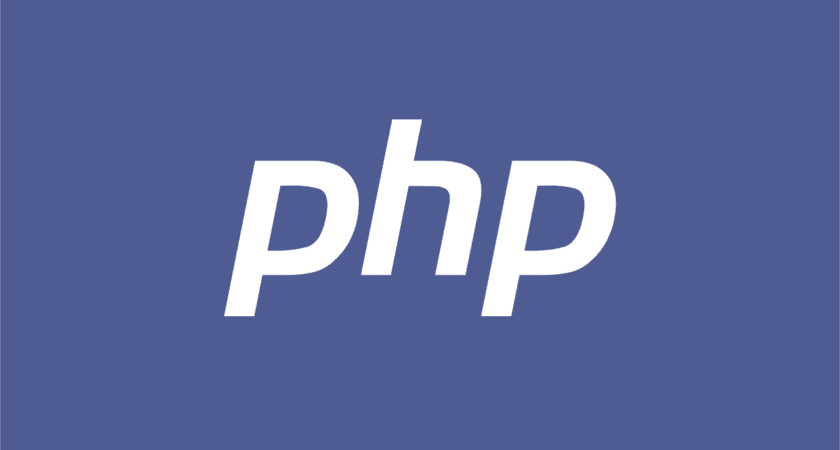Introduction to Advanced PHP Programming
Advanced PHP programming is the study of more advanced concepts and techniques in the PHP language. This can include topics such as:
- Object-oriented programming (OOP): The Object-Oriented Programming (OOP) paradigm employs objects to symbolize tangible items. Objects are self-contained blocks of code that have functionalities in addition to data. Writing complicated, reusable code is made possible by OOP.
- Namespaces: Using namespaces, you may categorize your code logically. This can improve the readability and maintainability of your code and assist avoid name clashes.
- Error handling: The process of identifying and fixing faults in your code is known as error handling. Acquiring this expertise is crucial as it can aid in averting application crashes.
- Security: Another crucial subject that PHP developers should understand is security. PHP applications are susceptible to several common security flaws. Understanding these vulnerabilities and how to prevent them is crucial.
- Performance: For any web application, performance is a crucial factor. There are numerous methods available to PHP developers for enhancing the efficiency of their apps.
Object-Oriented PHP
PHP that is object-oriented, or OOP, is a programming paradigm that arranges code using classes and objects. Objects are independent entities with functions and data. Classes are object creation blueprints.
OOP has several advantages over procedural programming, including:
- Modularity: OOP code is more modular, meaning that it is easier to break down into smaller, reusable components. This makes code easier to maintain and update.
- Abstraction: OOP allows you to abstract away complex details, making your code more concise and easier to understand.
- Encapsulation: OOP allows you to encapsulate your data, meaning that you can protect it from unauthorized access.
- Polymorphism: OOP allows you to define different implementations of the same interface, making your code more flexible and extensible.
To use OOP in PHP, you first need to create a class. A class defines the properties and methods that its objects will have. To create an object, you use the new keyword.
Security in advanced PHP Applications
Security in PHP applications is essential, as PHP is one of the most popular server-side programming languages in the world.
There are a number of things that PHP developers can do to secure their applications, including:
- Using the latest version of PHP: The most recent version of PHP should always be used by PHP developers since it has the most recent security updates.
- Using prepared statements: Because prepared statements stop attackers from inserting harmful SQL code into their queries, they aid in the prevention of SQL injection attacks.
- Validating user input: User input should always be validated by PHP developers before being used in their apps. By doing this, attackers will be deterred from inserting dangerous code into their programs.
- Keeping software up to date : It is recommended that PHP developers maintain the most recent versions of their operating system, libraries, and PHP framework. Patching any known security flaws will be aided by this.
Building a RESTful API in advanced PHP
One common method of making data and functionality available to other apps is using RESTful APIs. They are made in many different computer languages, including PHP, and are simple to use and comprehend.
In order to create a RESTful PHP API, you need to :
- Choose a PHP framework. A lot of the boilerplate code, like routing, middleware, and database access, that you need to develop an API may be found in frameworks. Numerous PHP frameworks are available, including Lumen, Slim, and Laravel.
- Design your API endpoints. Every endpoint will stand for a particular resource or function that your API is capable of executing. You may, for instance, have an endpoint where you can create a new user or obtain a list of users.
- Implement your API endpoints.Writing PHP code to manage the many requests that can be made to each endpoint will be required for this. Additionally, you will have to choose between JSON and XML for your data representation.
- Test your API. It is imperative that you extensively test your API prior to putting it into production. A number of tools, such Postman or curl, can be used for this.
- Deploy your API. You can put your API into production once it has been tested and found to function properly. Making it available via the internet to other programs will be necessary for this.
conclusion
PHP programming at an advanced level provides strong and flexible web development features. Web application development is made efficient and secure by its many frameworks, like Laravel and Symfony, and its large community support. Organization and reusability of code are improved by features like characteristics, namespaces, and object-oriented programming. It may be used for a variety of jobs because it supports RESTful APIs, databases, and templating. PHP 8 also brought substantial speed enhancements and technologies like JIT compilation. PHP is a competitive option for current web development, giving both a rich history and a potential future in the rapidly evolving digital scene, despite criticism for its historical inconsistencies.
